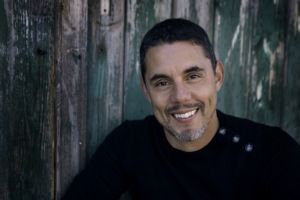News
Local elections 2017: A new kind of Radikale voice for Frederiskberg
This article is more than 8 years old.
A passionate believer in integration and a campaigner for better conditions for trafficked women, David Zepernick hopes to be elected in Frederiksberg

Zepernick wants to target young refugees in order to get them onto the Danish employment market (photo: Radikale)
David Munis Zepernick is standing for the Radikale party in the local elections for Frederiksberg Municipality.
Born and raised in Denmark, Zepernick’s maternal grandfather was from west Africa, meaning he has more first-hand experience of other cultures than most. Integration is therefore an issue he holds close to his heart, particularly given the portrait of Denmark being perpetuated by many of the country’s newspapers.
Today’s tabloids contend that integration is not working in Denmark, a country where people are afraid to visit certain neighbourhoods because of criminal gangs and religious fanatics.
Zepernick could not disagree more. He believes constructive solutions are the answer and that newly-arrived foreigners – whether immigrants or refugees – are a potential resource rather than a millstone.
In his role as the current chair of the Safe and Alive Foundation, an organisation working to assist victims of trafficking, Zepernick knows only too well what can happen when integration and immigration issues are not addressed.
Should he be successful on November 21, he intends to use his seat on the municipal council to push such matters to the forefront and accomplish real change.
You’re running for office in a municipality that would appear to want to keep its allocation of asylum-seekers as low as possible, often pushing its burden onto poorer municipalities, such as those in the west of Copenhagen. How do you intend to address this? It doesn’t sound like a fair deal.
It isn’t! No municipality is better suited to addressing the challenges of integration than Frederiksberg. I don’t buy the argument that we should try to relocate refugees outside Frederiksberg because the housing price per square metre is higher in Frederiksberg than in practically all other municipalities – wealth cannot be an excuse. Pushing the immigrants out rather than trying to integrate them locally is one of the main causes of the marginalised neighbourhoods, which the tabloids are so keen to dwell on.
So, how do you intend to address this?
Køge and Solrød, two municipalities in the southwest of Copenhagen, have tackled things differently. They encourage foreigners arriving in Denmark that their skills can be adapted to Danish circumstances. The municipalities map their competencies and assign a career mentor to them and/or involve them in voluntary work from the very beginning.
This is an excellent way to create success stories for the individuals involved and for the local community, as well as converting as many of them as possible into tax-paying citizens, contributing to the common good and becoming integrated into society because of that. It is also important to publicise these success stories to counter the general perception that every foreigner is an unwanted burden.
What about those who have little education. How can we integrate them?
It’s true that many refugees and newly-arrived foreigners have little or no education. They may also be traumatised by their experience getting here. For them to become good tax-paying citizens there has to be a way to get them into the Danish labour market.
At the moment, there is a system that works quite well called ‘branchepakkeforløb’, which matches individuals with industries and companies where there is a demand for manual labour. I feel that this should be strengthened, as it does provide real jobs at real companies.
What other jobs can they do?
I think it is vital to target the young and would like to see a two-fold strategy that includes a job exchange to match young refugees with the jobs that local young people would have, such as in shops and supermarkets. The merit of this is to introduce foreigners to the Danish job climate from the start.
I would also like to see people prepared to introduce young newcomers into the social life of the community, such as at sports clubs. This could be an important stepping-stone to learning the language and acquiring the necessary social skills to equip them for Danish society. Some places, such as Ringkøbing-Skjern Municipality in Jutland, are already doing this and getting good results.
In your role as the chair of the Safe and Alive Foundation, an organisation working to assist victims of trafficking, you’re working hard to address the problem of foreign prostitutes on streets like Istegade in Copenhagen. Why is it such a big problem?
The women, who primarily come from Nigeria and Romania and are here illegally, pose a health risk to themselves. They have no health insurance, which when you take their risky line of ‘work’ into consideration, constitutes a health risk to themselves and everybody else.
What have you achieved during your time as chair?
I’ve overseen the setting up of a free health clinic for foreign women in prostitution. Since its foundation in 2010, the ‘Tuesday Clinic’ has had about 250-300 consultations a year. It’s the only local initiative addressing that problem.
On top of its specific health-related services, the clinic also serves as a point of entry for women with a history of sex trafficking, where they can receive a helping hand from the relevant national authorities.
What would like to do if you’re elected?
If we work together, we could eradicate sex trafficking in Denmark. But to do that would require a dedicated effort and a victim-focused approach, as suggested by our friends in the US State Department, whereby you stop treating the women as illegal immigrants and criminals and start treating them as victims of a serious crime.










































